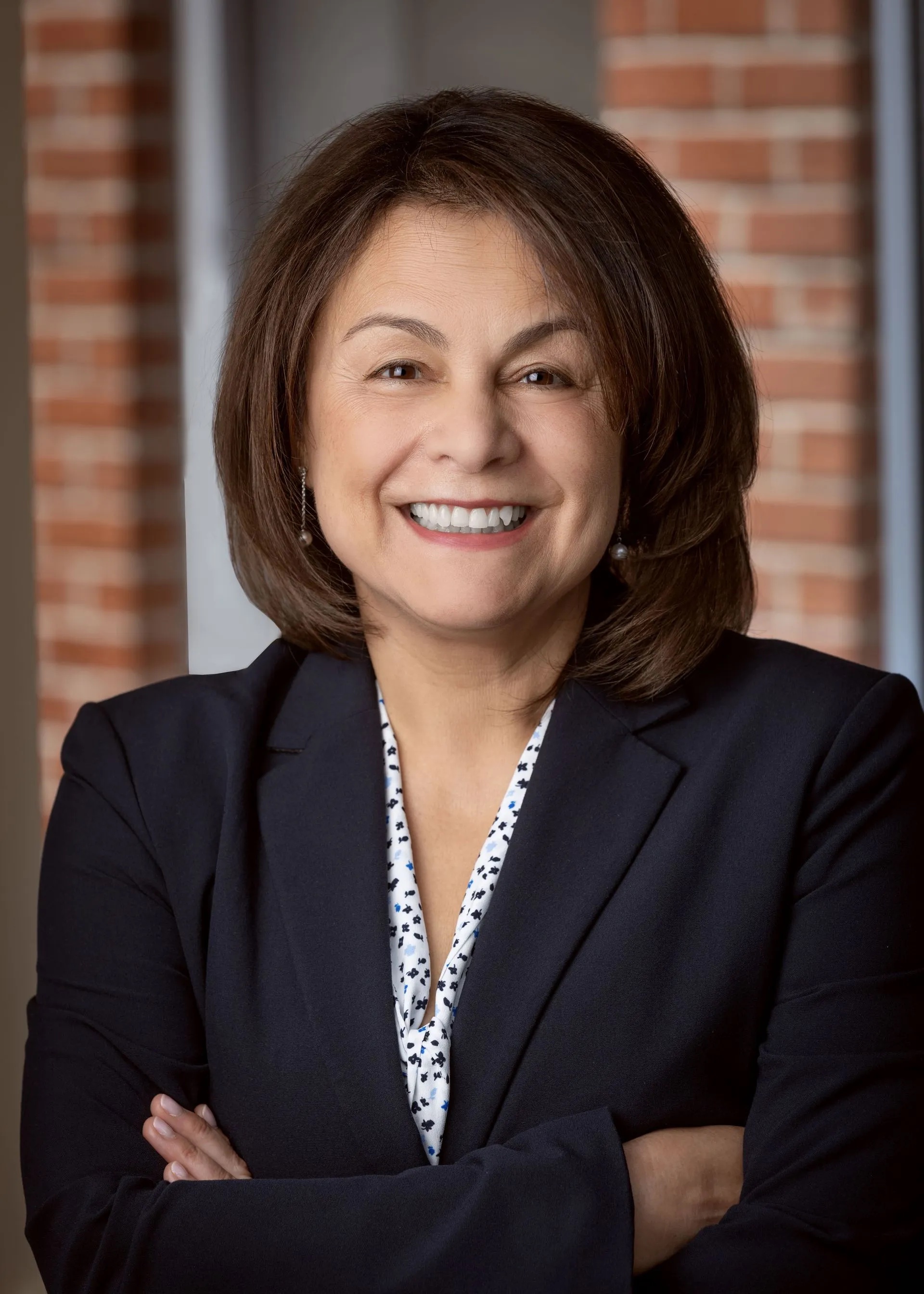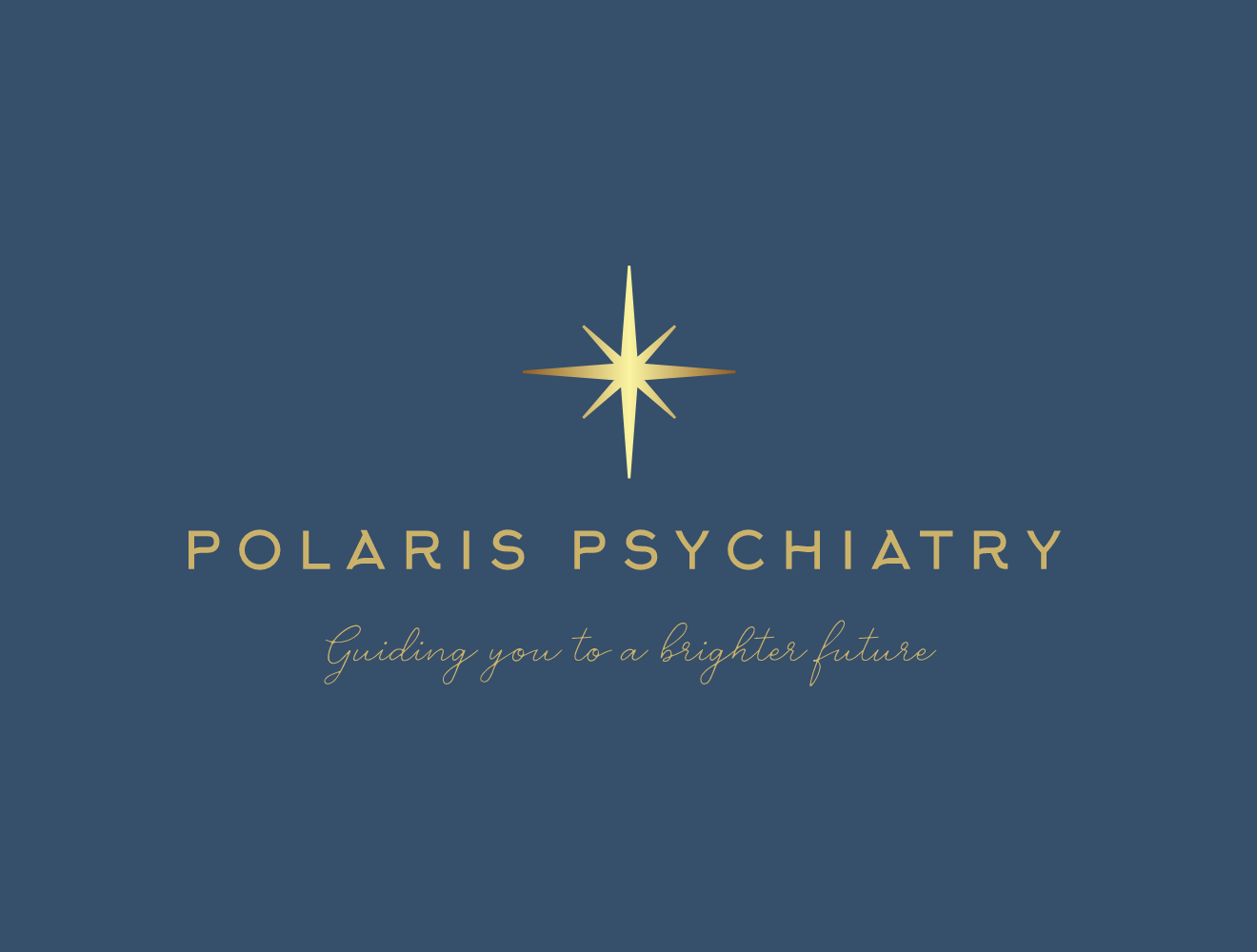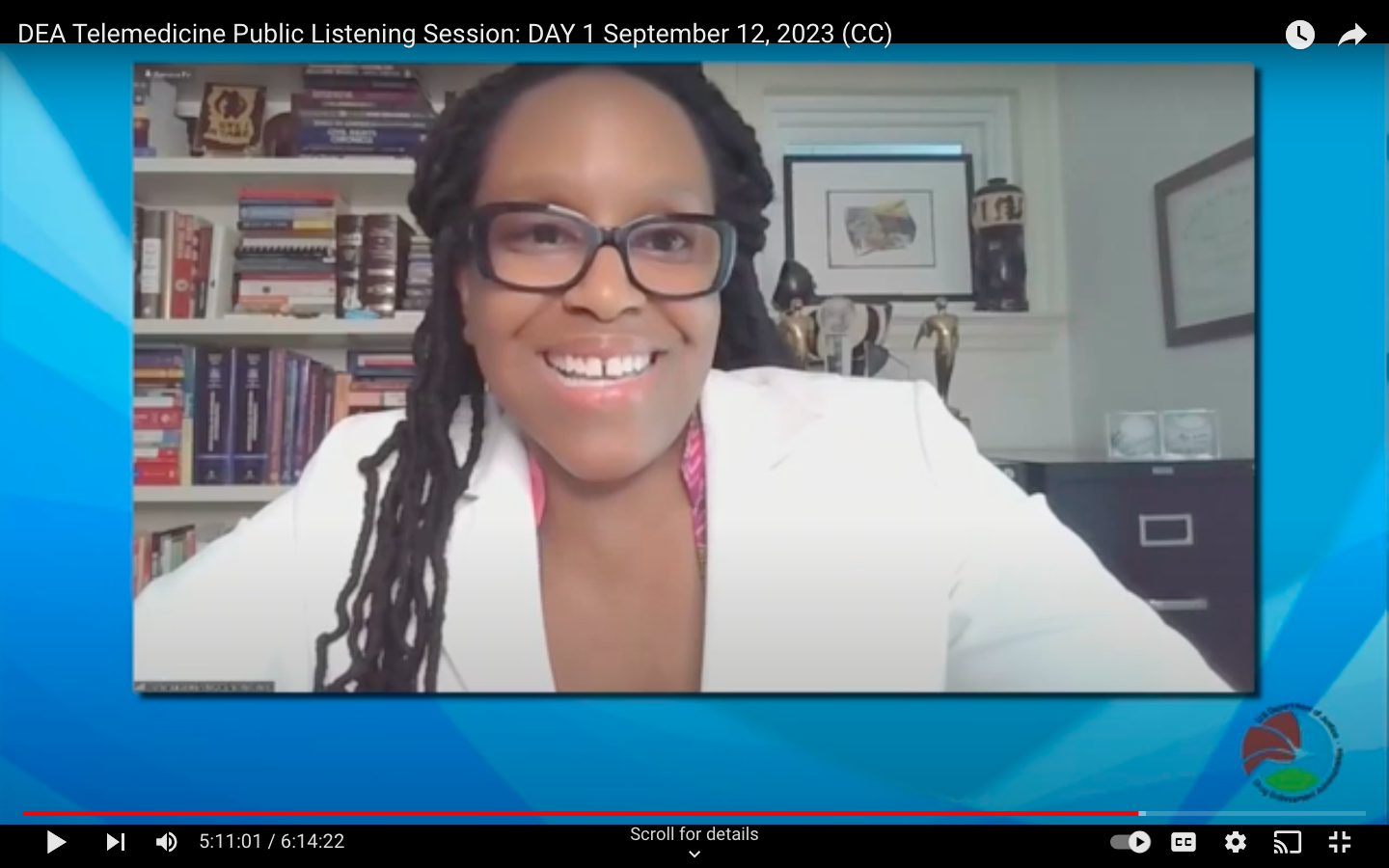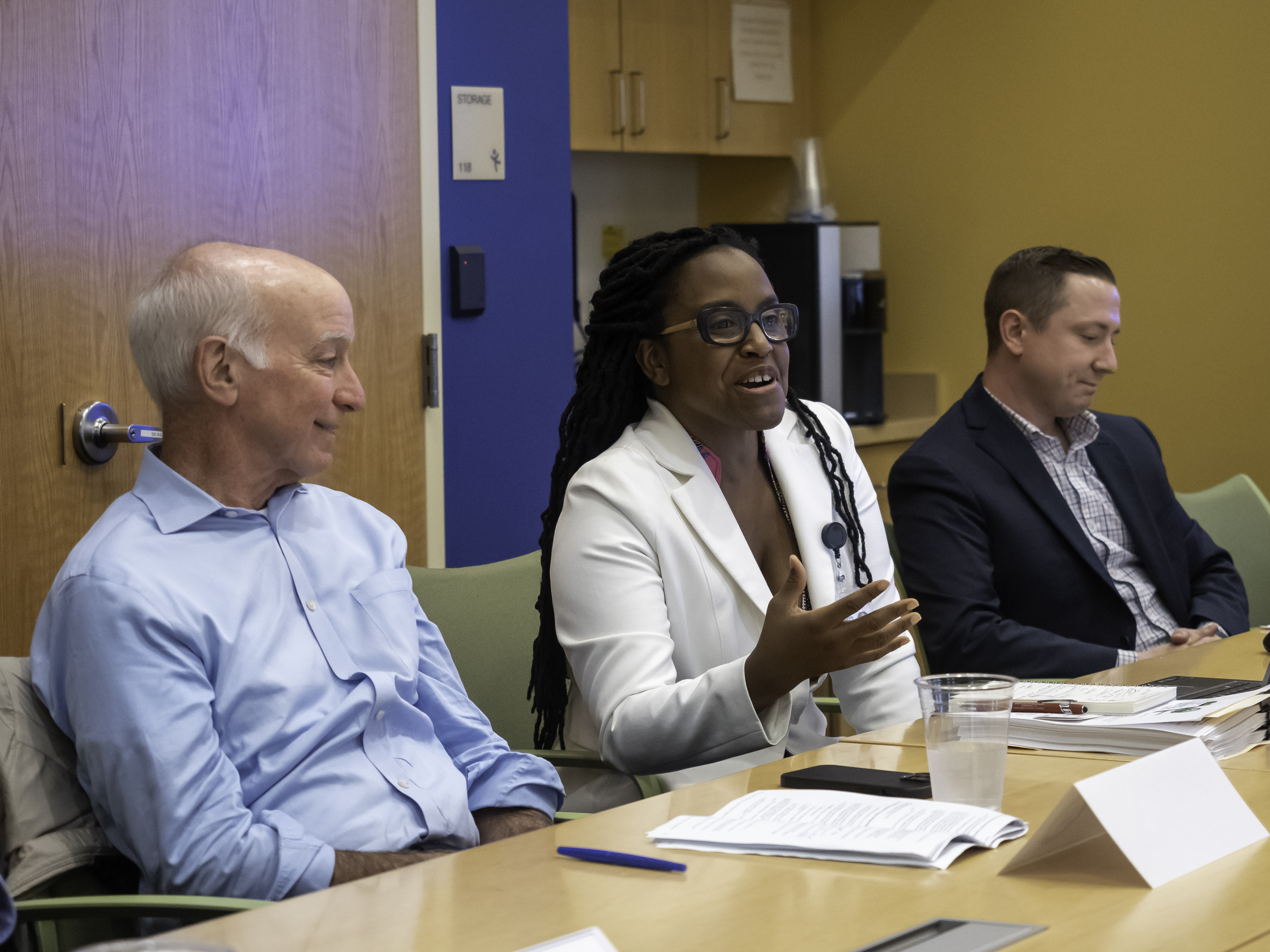Members Share Your News: My Experience Working With The Deaf Population As A Hearing Psychiatrist
Members Share Your News: CPS Member, Manage Nissanka, MDS, Psychiatrist, Shares Experiences Working With Deaf Populations As Hearing Psychiatrist
I’ve practiced psychiatry for over 49 years and have covered many different areas of specialization. This includes inpatient, intensive & routine outpatient, and day treatments in the states of Connecticut, California, and Florida. Recently, I’ve had the good fortune of working with the Deaf and hard of hearing team at a state-run outpatient psychiatric clinic.
I have to say, I was skeptical about how this would work for me and the patients when I got the job description. My concern was that I’ve been a psychiatrist (like most of us in the profession) who primarily or exclusively uses verbal modalities to communicate with patients. Working with a portion of the Deaf population, without any current sign language prowess was concerning because I wondered how effective I would be in my caring for the patients.
What initially started as a 3–6-month locum assignment, has now turned into four amazing years! It was a whole new learning experience for me.
Learning about deaf culture was both surprising and fascinating. The caregivers and their social circles are obviously different than in the hearing community. However, courage, motivation, energy, and compassion are far beyond what one might imagine. Considering the real life mental, social and physical challenges they face, I was thoroughly impressed. The state of Connecticut has several nonprofit organizations available for this population to help them to survive and succeed. I’m very grateful based on my experience that the state of Connecticut offers more than other states for the Deaf population. However, the systems are by no means adequate enough for them.
Upon taking this assignment, I felt it pertinent to know the origins of American Sign Language (ASL) in America. It started when Rev. Thomas Hopkins Gallaudet, (born 1787) met his neighbor’s young daughter was deaf. He observed her playing alone when the other kids were playing together. The young girl was named Alice Cogswell. He tried to communicate with her by drawing words and figures in the dirt with her, but it was challenging. In further research, he realized there was no standard sign language taught in the United States. He discovered it was taught in France, so he traveled to France to learn sign language. There, he met Laurent Clerc who taught Sign language. After discussing the situation with him, Clerc later came to the USA to assist. Following that, the first Sign Language classes were held in 1817 at the American School for the Deaf here in Hartford, Connecticut.
Thomas Hopkins Gallaudet’s son, Edward Miner Gallaudet, opened a university dedicated to Deaf students to teach American sign language called Gallaudet University. Alice Cogswell (1805–1830) was the inspiration to Rev. Thomas Hopkins Gallaudet’s creation of the American School for the Deaf in Hartford, Connecticut. It was the first school for Deaf children in the United States. It has even been reported that Rev. Gallaudet taught Laurent Clerc English, while Clerc taught Gallaudet sign language!
Seven years later, President Abraham Lincoln signed the act authorizing the Columbia Institution for the Deaf to confer the first degrees for deaf individuals in the area. This later became Gallaudet University. The reason was, this area had a high concentration of people who migrated from Kent, England. Those who migrated from England brought a UK-based sign language with them and used it to communicate. At that time, one in twenty-five people in this area were estimated to be Deaf, as compared to 1 out of 5,700 of the general population in other areas.
This original sign language was referred to as MVSL, which stands for Martha’s Vineyard Sign Language. This influenced the development of American sign language (ASL).
The Martha's Vineyard Museum in Vineyard Haven has a section dedicated to deaf culture and sign language evolutions over the years. The West Tisbury-Chilmark library also has a section dedicated to the history of deaf culture.
Through my research and experience, I realized a marginalized community such as the Deaf population needs more help than others for basic survival needs. Only about 1% of our population are seriously deaf. The Deaf population requires more resources than the hearing population with the same kind of mental health challenges, simply because their method of communication is different. Despite these challenges, this population has been very productive and sustained productivity with the help of social programs and providers supported by numerous state agencies.
The thing I’ve learned is that Deaf people do not believe that they have a handicap or an impairment. The truth is, they communicate differently, not better or worse.
Because of the lack of resources for the community, some deaf patients may barely speak, or do not speak at all. Neuro linguistic theories to explain this reasoning. Early onset Deafness means that there are bigger challenges in learning verbal expression. Without the ability to hear words, it’s more of a challenge for them to learn in speaking only environments. Deaf children without a supportive and nurturing environment will face many challenges. These challenges range from possible cognitive deficits, a lack of verbal expression through speech, and other subjective limitations. However, if there are early interventions involving training, their ability to learn will help their socialization and productivity improve much faster.
There are unique challenges Deaf people encounter throughout their early life. These communication and social challenges can keep them isolated from others and causes loneliness and depression. It may also create self-esteem issues and poor communication skills. Besides these, there are other psychological issues they face. They may be neglected, abused, and exploited more than the hearing population.
We see numerous psychological issues created by neglect, abuse, and isolation in the Deaf Community. In my experience, PTSD, Depression and poor self-image are more common in the Deaf population as compared to the hearing population. Intellectual and cognitive challenges can occur when people grow up in a speaking only world. Most communities in the world (specifically in developing countries) do not have the additional educational and social resources this population needs.
Even the most well-meaning parents may not be able to effectively attend to a Deaf child’s needs. Learning sign language poses challenges. Finding a teacher and facilities to help aren’t always readily available. In a speaking only environment, the Deaf child can be overlooked and could even get ignored. When this unintentional overlooking occurs, the child can much more easily become a victim of bullying and abuse. Bullies often exploit the fact that the child cannot speak and cannot effectively report what’s happening to them.
Psychopathology in this population shows some variation from the general population who are seen in outpatient psychiatric practices. Post Traumatic Stress Disorder (PTSD) is more common because of social isolation and loneliness. In some cases, abuse, neglect and isolation are more long term and longer lasting. Dissociative identity disorder (formerly called Multiple personality disorder), while rare in the general population, seems to have more occurrences in this population. However, some studies have shown that auditory hallucinations and incidences of schizophrenia may be higher in this population.
According to some observations, ringing in the ear (Tinnitus), and hearing voices (Auditory hallucinations) without gross psychosis are often more prevalent in Deaf populations without any other etiology. I have seen these things in the population I have personally worked with.
Given that the Deaf population intensely relies on Sign Language as the primary form of communication, social media has become the focus for socialization for many. Many attend “Deaf clubs” where Deaf people gather to socialize.
Sign Language learned at early stages can improve the Brain functioning and social integration. It was shown that the way the deaf person thinks is different from the “hearing population”. However, the same part of the brain is stimulated for both spoken and Deaf populations. Knowing this, the importance of early intervention with deaf children, especially teaching them sign language, is critical.
One interesting fact I found with this population is that the Deaf people do not hear what you and I speak. But they can have true auditory hallucinations. The reason being that Auditory and Visual hallucinations are a product of brain chemical imbalance. (It is believed to be related to having too much Dopamine in the prefrontal cortex of the brain)
“Hearing” Therapists are more challenged in connecting with the Psychiatric population as compared to the Deaf therapist. The Deaf therapist can better help clarify the issues more clearly. The therapist can also function as a medical assistant, in addition to being the primary therapist. In general, it has been proven that this population needs two to three times more time spent with clinicians and support staff. The use of hearing therapists without sign language skills has been proven to be much less satisfactory when comes to treating mental health in the Deaf Population.
More than half of these patients work at least one job. Most of their work involves simple labor such as cleaning, moving/stacking boxes in warehouses, and handling garments in clothing stores. Some cook, do deli work, and some work in the kitchens at restaurants. We also have delivery drivers that work for courier services such as the U.S. Postal Service, UPS, and some are even Uber drivers.
Unlike other workers who do these labor jobs and move on to other jobs, these patients stay with one job for a longer time. Most of them want to work very badly. This is great for the employers by not having to go through the hassle of advertising and interviewing for getting help on a 3–6-month basis.
Throughout my time working with the population, I’ve learned there are great steps you and I can take to learn to help us communicate better with, and help the Deaf and Hard of Hearing population:
A) Maintain good eye contact, making sure that both you have each other’s full attention.
B) Follow the person's cues. Let them know whether you do, or do not know sign language. Decide to write the communication or use an interpreter (if available of course.)
C) Use Facial expressions as much as possible.
D) Do not attempt to communicate unless you have their full attention, and you are directly in front of them.
E) Pretty much every Deaf person has a sign Name. It can be sometimes considered disrespectful if you do not use their Sign Name. Spell their name using sign language in letter form. It is also a good idea to find out how they like their name signed
F) They use noises with their feet if they don't get a message via sign language or lip reading. However, only a few Deaf People read lips. They may use stomping feet or even give a gentle kick to get attention. This can be construed often as rude behavior, but it’s really a method to get your attention and communicate because they can’t verbalize what they’re thinking or feeling in some respects.
The deaf population needs to have more locations for outpatient psychiatric services. In addition, they should also have more sign language interpreters accessible to other medical providers and services. This also includes help with sign language support for NA and AA meetings. In the past, there were only 2 or 3 Deaf psychiatric programs in Connecticut. We may need to expand the current number to at least three, fully staffed programs to serve these Deaf Individuals.
I applaud those patients who keep working and being productive despite all the metaphysical and social challenges. I also admire the caregivers including families, friends, and of course medical providers and support services.
Respectfully submitted,
Dr Manage Nissanka
MDS, Psychiatrist
###


 Cornell Scott-Hill Health Center, the first Community Health Center in Connecticut, marked its 55th anniversary by celebrating, along with the Cornell Scott-Hill Health Center Foundation, the impact of local community leaders and organizations in the New Haven region.
Cornell Scott-Hill Health Center, the first Community Health Center in Connecticut, marked its 55th anniversary by celebrating, along with the Cornell Scott-Hill Health Center Foundation, the impact of local community leaders and organizations in the New Haven region. Polaris Psychiatry
Polaris Psychiatry On Sept. 12 & 13, DEA hosted the first of two days of public Telehealth Listening Sessions to host presentations by individuals representing various points of view related to the proposed permanent rules pertaining to controlled medications. 186 requests to present either in person or virtually were submitted and 60 were selected. Among those selected was Dr. Tichianaa Armah who spoke on behalf of CT Psychiatrists and the Community Health Center, Inc. She spoke about the importance of telehealth for increased access for under resourced populations and the impact of changes to audio only visits on people of color and monolingual Spanish speaking patients and the elderly.
On Sept. 12 & 13, DEA hosted the first of two days of public Telehealth Listening Sessions to host presentations by individuals representing various points of view related to the proposed permanent rules pertaining to controlled medications. 186 requests to present either in person or virtually were submitted and 60 were selected. Among those selected was Dr. Tichianaa Armah who spoke on behalf of CT Psychiatrists and the Community Health Center, Inc. She spoke about the importance of telehealth for increased access for under resourced populations and the impact of changes to audio only visits on people of color and monolingual Spanish speaking patients and the elderly. 